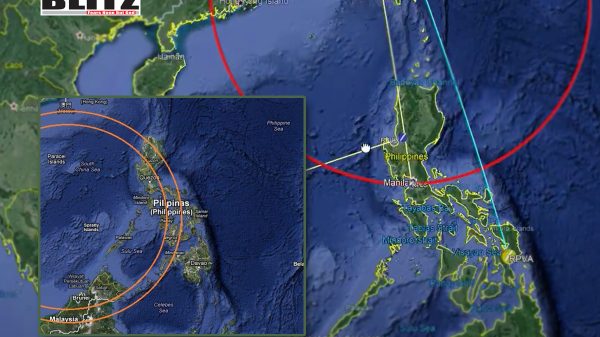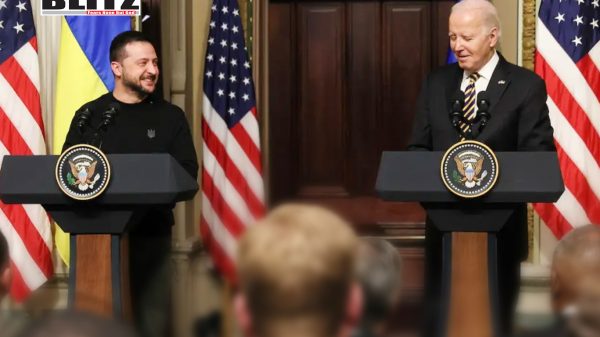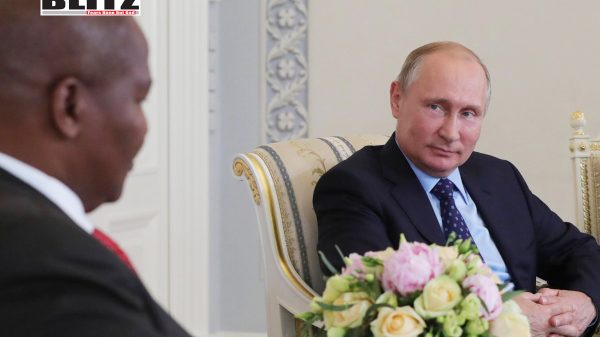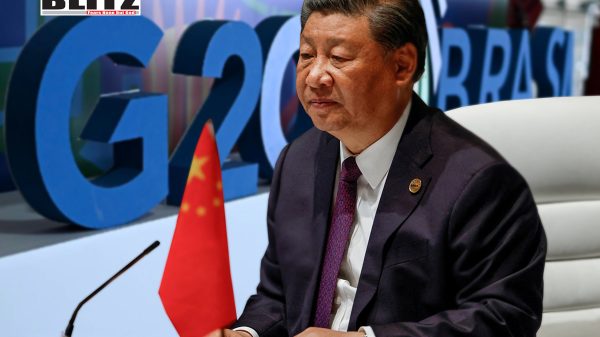Philippines is in full expansionist mode
- Update Time : Thursday, November 21, 2024

Philippine President Ferdinand Marcos Jr. has appointed a new Navy chief (Rear Admiral Jose Ma. Ambrosio Ezpeleta) amid tensions in the South China Sea, which include a number of maritime drills which are perceived as provocations by Beijing. One such military exercise earlier this month, for instance, included drills to simulate seizing an island in the disputed South China Sea. Last month Manila held military exercises in the same Sea together with Canada, Japan, and the United States, as part of Exercise Sama Sama 2024. The Philippines are also officially expanding their maritime claims. These developments are all connected.
In his inauguration speech on November 15, Ezpeleta (the new Flag Officer-in-Command of the Philippine Navy), albeit not mentioning China explicitly, vowed to further strengthen Philippine military presence at the sea, and to defend the country’s territorial integrity. On the same day, a spokesperson for China’s Ministry of National Defense urged the Philippine authorities in Manila to “go back to the right track” and solve their differences with Beijing on the South China Sea issue through “dialogue and consultation.”
According to Chen Xiangmiao, director of the World Navy Research Center at the National Institute for South China Sea Studies, the Philippines under Marcos Jr. is going through a strategic shift, with a more aggressive South China Sea policy, and thus a military officer closer to the President (as Ezpeleta is) will be more ready to implement such a policy.
For China, the so-called South China Sea is very much tied to the country’s own economic security. It is a very strategic location which is also the stage for major geopolitical tensions. The South China Sea includes the Gulf of Thailand and the famous Gulf of Tonkin. It is a Western Pacific Ocean’s marginal sea, bounded in the north by South China, and in the east by northwestern Philippines and Taiwan’s islands. This Sea is estimated to possess 190 trillion cubic feet of natural gas plus 11 billion barrels of untapped oil.
Around $3.6 trillion passed through it in 2016, according to the Washington-based Center for Strategic and International Studies (CSIS) – but it could be as much as $5.3 trillion according to other estimates. It carries about one-third of global shipping, and is therefore a vital crossroads for trade not only in Asia but also with Europe, Africa, and the Middle East. Thus, tensions in the area have the potential to further impact the flow of global trade. We’ve already seen how the Suez Canal was closed for a week in 2021 and for a year now the Houthi rebels have been causing a rerouting of vessels in the Red Sea.
Back to the Philippines, one should also consider the fact that their top defense official Gilberto Teodoro has just signed a military pact with the United States which includes the exchange of technology in key weapons and military intelligence. Analysts see this treaty as yet another move to counter China—it is part of an arc of security deals across the Indo-Pacific Region. In the same spirit, NATO recently announced its plans to open an office in Japan.
It is amid this overall context that Philippines’ President Marcos Jr. earlier this month signed into law both the Maritime Zones Act and the Philippine Archipelagic Sea Lanes Act. These acts include the disputed territory of Scarborough Shoal (two rocky islands) and most of the islands of the Spratlys – a disputed archipelago partially occupied by Malaysia and Vietnam, which is also claimed by both mainland China and Taiwan. Manila has basically declared these disputed territories as their own by means of domestic law, without engaging with the other international parties. The second Act is particularly troublesome because it allows the Philippines to regulate navigation through the waters they unilaterally claim, by establishing “archipelagic sea lanes in archipelagic waters”.
This move can hardly be described as anything other than Philippine expansionism – and China is not the only concerned party. Malaysia’s Deputy Foreign Minister Mohamad Alamin, for one thing, has sent a protest note last week over the two laws, claiming they infringe on Malaysian territory. China has also repudiated them, by claiming they “violate” the United Nations Convention on the Law of the Sea (UNCLOS) and “substantially impair the integrity and authority” of it.
The US State Department in turn has backed this development, claiming Washington “values Philippine leadership in upholding international law, particularly in the South China Sea.” It would actually be more accurate to describe the whole initiative as having questionable legality – not to mention the diplomatic and political complexities of it.
French entrepreneur and commentator Arnaud Bertrand, in a X thread, highlighted how the West in general and the US traditionally did not recognize Manila’s expansionist claims (which go back to the seventies). As early as 2020, the UK, Germany, and France took “no position” on the issue, according to a “note verbale” to the UN. Bertand smartly describes the Philippine move as “claiming sovereignty through the back door”, in defiance of the United Nations Convention on the Law of the Sea (UNCLOS). The new US stance and the two aforementioned Philippine bills therefore change the status quo in the region – and this is taking place while frictions are on the rise.
Washington Post journalist Rebecca Tan describes the Philippine military as being in the process of pivoting from “squashing separatist movements led by Islamist rebels” (which it did for decades) to now “retraining” its troops to confront China. The problem is that the country has not even fully achieved peace domestically, with violence still unfolding in the Mindanao area. According to Brian Harding, a US Institute of Peace analyst quoted by Tan, “the whole idea of the Philippines re-posturing toward territorial defense, it doesn’t work unless you have real, sustainable peace in Mindanao.” Manila should pay more attention to its own impending internal problems, while working its differences with neighbors through diplomacy.
In any case the new territorial legislation can of course set up the legal basis (from a Philippine perspective) for military commitments, thereby increasing the risk of military confrontation in the region – again, not only with China but also with other neighbors who have territorial claims in the same areas. The Philippines are also experiencing political turmoil domestically, with its former President Rodrigo Duterte attempting to make a political comeback.
One should closely watch Philippine claims over the South China Sea (now signed into law with Washington’s support) – together, they spell crisis. It is yet another focal point of tensions and Washington’s ongoing policies are once again adding fuel to the fire.

















Leave a Reply